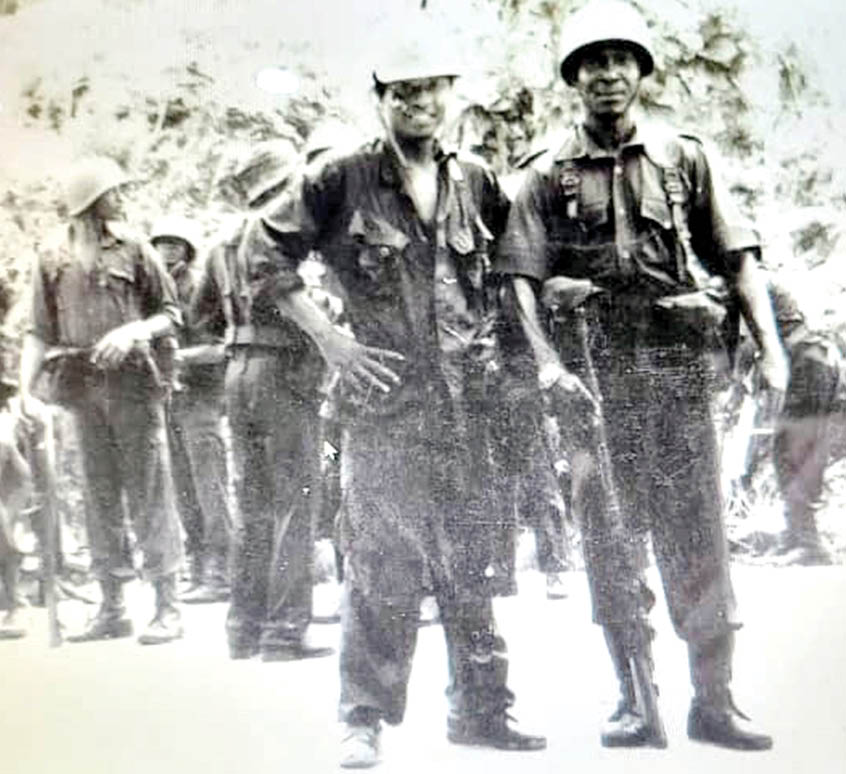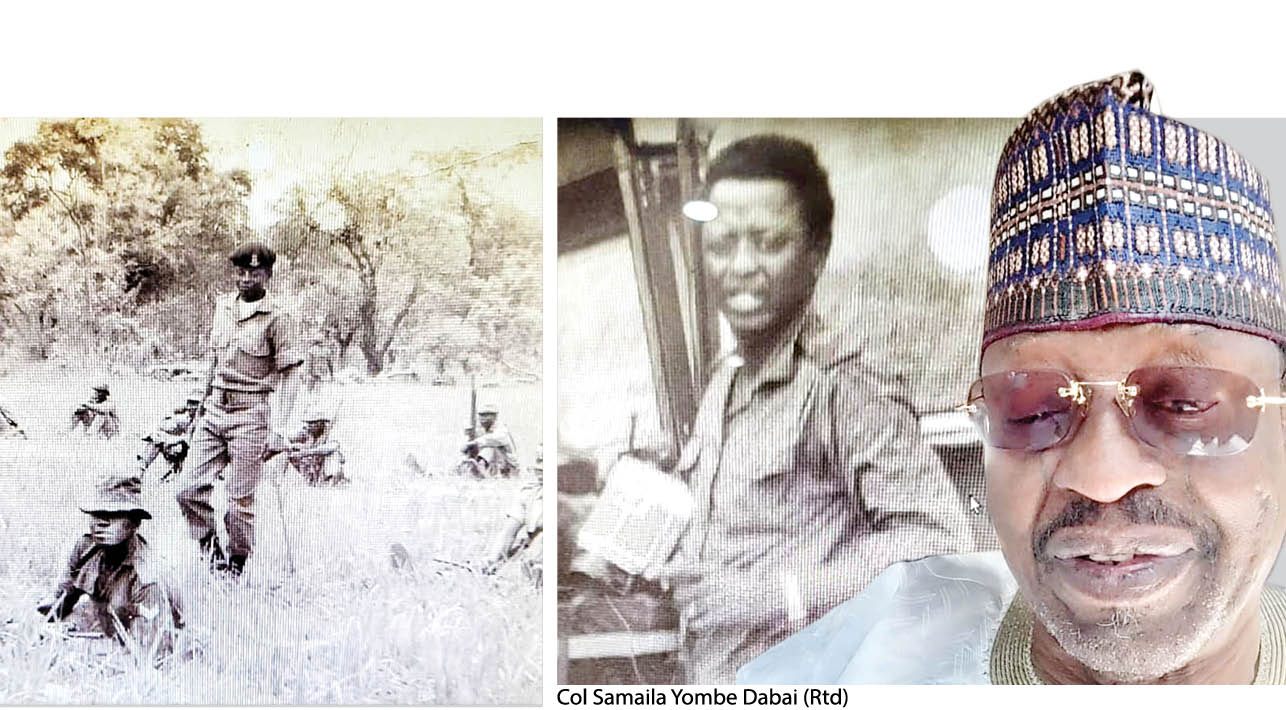Col. Samaila Yombe Dabai is one of the veterans of the Nigerian civil war. The infantry officer fought in the war from when it started on July 6, 1967 to when it ended on January 13, 1970. His battalion captured Enugu, the coal mine and other towns during the war. In this interview, he relates his experiences of the war.
Where were you when the civil war started?
I was selected to go to the academy as a commissioned Second Lieutenant. We were drafted to One Sector in Nsukka. This was where the Nigerian civil war met me. At that time One Sector was located at Nsukka under the command of Gen. T.Y. Danjuma, who was a Major then. We had 4th battalion, 21, 22 and 5th Battalion under T.Y. Danjuma’s command. I was posted to the First Battalion under late Major Salih. The First Battalion was left to secure Nsukka, while the 5th, 21, 22 Battalions were on the mission to capture Enugu.
What was on your mind the day you were taken to the war front?
Well, I was about 16 years old then. With all that I had learnt about warfare, to me it was like I was going to be like an actor at the war front. I saw myself as a commander in battle, a typical mindset of a young man. But when two soldiers were hit and they died right there by my side, it dawned on me that it was not acting. I also realised that I had to employ all the war crafts that I had learnt.

What was your experience like?
The mission to capture Enugu began in the early hours of the morning. I had gone to say goodbye to one of my course mates who was posted to 21 Battalion under General Wushishi, who was a Captain then. I remember telling him jokingly that, I had come to say goodbye to him because he was going to war before me and I might not see him again to shake hands with him. I can’t forget that day. I was at the start line when the 21 Battalion began moving to their first mission. I watched until they all disappeared into the bush and as I turned to go, I ran into the Biafran soldiers, but somehow I managed to escape. I then moved from one tree to the other until I was able to escape. Although I knew that didn’t present a large target to them because I was very small at that time.
Tunde Idiagbon was commanding one of the companies in my battalion; Stephen Eka was also commanding one of the companies. I was made the Adjutant of the battalion and I was also given the responsibility of commanding Delta Company. I had two responsibilities. The Operation Capture Enugu began, and First Battalion was sent to relieve the 21 Battalion and we embarked on the task. First Battalion was specifically sent to the coal camp and that was where we began real action. Members of my company were all Tiv speaking people, from Makurdi and Gboko and they spoke only Tiv language. None of them could speak Hausa, so I began to learn the Tiv language. Before I left Delta Company and settled in Enugu, I was able to speak Tiv fluently.
How did your company secure the coal camp?
Before we secured the coal camp we had to climb the Oparah coal mines. These were mountain ranges. We had to dominate the mountain hideout to secure the coal mine. We had the misfortune of having to climb the mountain, but that’s history now. Yes, we were able to capture Enugu and the coal camp was part of Enugu. After we captured Enugu, we had to capture Agwu. We captured Okigwe, before I was posted from the First Battalion to 44 Battalion, which was commanded by General Ibrahim Babangida. While at the command, I counted myself lucky to serve under that officer. I learnt soldiering and how to handle leadership positions at any level from him.
At what point did you pull out of the war?
The war ended with me. That day was historic. I was in the war from the beginning to the end.
If you look back, will you say there was justification for that war?
With what I now know as Nigeria and flashing my mind back to the era of the coup d’etat and what followed, what led to those incidents have happened 500 times over today. When I remember the souls we lost to the war and we are still far behind from where we started, it’s disheartening. The slogan at that time was, ‘Go on with one Nigeria’. We all stuck out our necks at all cost to make sure we remained as one Nigeria, but after over 50 years, we are still not one. It is painful.
Looking at the activities of the IPOB, Yoruba nation agitators and others, don’t you think it’s another way of drumming for war?
Well, it will be stupid for anybody to consider war as part of agitation. There are several avenues through which we can sort out our differences. The United Nations is there. I think the Yoruba nation agitators are taking the right steps by making their point peacefully. Those agitating for Biafra should remember what late Odumegwu Ojukwu said, that “war is not the answer for Nigeria.”

 Join Daily Trust WhatsApp Community For Quick Access To News and Happenings Around You.
Join Daily Trust WhatsApp Community For Quick Access To News and Happenings Around You.


